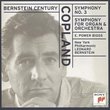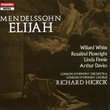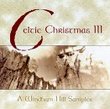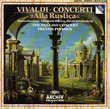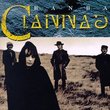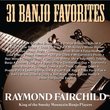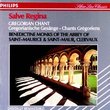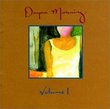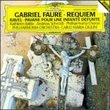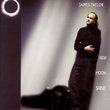| All Artists: George Frederick Handel, Edward Higginbottom, Iestyn Davies, Academy of Ancient Music, Toby Spence Title: Handel: Messiah (1751 version) Members Wishing: 0 Total Copies: 0 Label: Naxos Original Release Date: 1/1/2006 Re-Release Date: 10/31/2006 Genre: Classical Styles: Opera & Classical Vocal, Historical Periods, Baroque (c.1600-1750) Number of Discs: 2 SwapaCD Credits: 2 UPC: 747313013173 |
Search - George Frederick Handel, Edward Higginbottom, Iestyn Davies :: Handel: Messiah (1751 version)
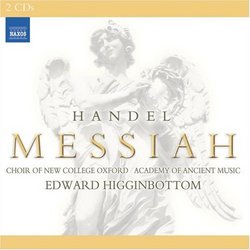 | George Frederick Handel, Edward Higginbottom, Iestyn Davies Handel: Messiah (1751 version) Genre: Classical
|
Larger Image |
CD DetailsSimilar CDsSimilarly Requested CDs
|
CD ReviewsA voice teacher and early music fan George Peabody | Planet Earth | 11/17/2006 (5 out of 5 stars) "'THIS IS NOT SACRED' JENNENS SAID, TO WHICH HANDEL AGREED; I SIMPLY WANT TO CHARM MY PUBLIC AND HELP THOSE THAT ARE IN NEED! 'Handel's most popular and joyous oratorio, a work of unfailing melodic invention and dramatic expressiveness, has become a British national institution, regularly performed by all manner of choirs and orchestras. This new recording (January,2006) provides the ONLY re-construction of Handel's unique London performances in 1751,when he used BOY TREBLE VOICES not only for the choruses but for the arias as well. It is both a celebration of the British chapel choir tradition and a window onto a particular time and place in the history of HANDEL'S own PERFORMANCES of his masterpiece.' It seems like I, personally, have waited all my life to hear the Messiah performed in this manner. I only hope that Handel somehow can also hear this absolutely magnificent rendition of this oratorio. Because of the use of the treble voices in the soprano and the male alto voices one can FINALLY hear the inner parts of the choral numbers. Thus,the balance of the voice parts is maintained. When I first heard the chorus enter in Part 1 with "And the glory of the Lord" it was like heaven opened up, and God appeared!!! Just fabulous sound!!!!!The entrances are clean and the diction thruout is quite easy to understand. Higginbottom's tempi are upbeat and bouncy; "For Unto Us A Child Is Born" really rocked!!!!I loved it! One has to remember that strictly speaking Handel did not write this to be a sacred composition and it actually was performed only once in a consecrated building. Rather his purpose was to delight and charm his listeners. As a writer in the Dublin Journal wrote after the first performance: "Words are wanting to express the exquisite Delight it afforded to the admiring crowded audience....." I found it very refreshing to hear the boy sopranos take over some of the solos: "He Shall Feed His Flock Like A Shepherd" etc. All 3 young boys were excellent; I especially liked the voice of Otta Jones; it was clear and bell-like. It was interesting to hear the "Rejoice Greatly..." sung by a Tenor and what a great tenor he is!!!!Toby Spence has a wonderfully resonant voice as does the bass soloist,Eamonn Dougin,who delivers his songs with energy and drama. As with all the British singers, the diction is perfection. I was mildly disappointed in Iestyn Davie's interpretation of some of his solos,especially "He was despised...." It seemed to me that he sang it in kind of a 'pop' style, and I kept hearing internally the voice of Michael Chance, and the way he sang the Messiah solos in Marriners' 250th anniversary disc. Of course, this is a personal bias on my part, and therefore can be refuted by almost anyone. However, Davies sings with much feeling and has a lovely voice,so it does not in any way detract from the excellence of the recording. There are certainly numerous interpretations of the Messiah ( I have a half a dozen), but each of us determines for outselves what we prefer, and there's nothing wrong with liking all of them!!!!This is just another perspective!!After all, Handel, himself added and subtracted and altered, but the essentials remained." Sensational and unique version at a bargain price as well Allan Brain | Houston, TX USA | 12/24/2006 (5 out of 5 stars) "I tend to avoid buying several different versions of the same work, but with works like "Messiah" there are a variety of different versions by the composer and also wide differences in style and forces among the recordings available. So I have several recordings of this ever-popular piece. Like Higginbottom's New College recording of Bach's St. John Passion, this performance uses boys as soloists for the soprano parts (except that "Rejoice greatly" is sung by the tenor). It's modeled after an actual performance that Handel did, in 1751 when he apparently had the good fortune to find some trebles who could, in the words of conductor Higginbottom in his notes, "step up to the plate". These three trebles certainly do. They are great and their pure and innocent voices tend to enhance the sincerity of the arias. I couldn't decide which one I liked best. At first, I wondered if an aria like "I know that my redeemer liveth" could be convincingly done by a treble. It took just a few seconds to dispel any doubts. The tenor and countertenor are also very satisfying. This issue comes squarely into competition with my previous favorite, that of Hogwood from almost twenty-five years ago, using somewhat similar forces (a boys choir and nominally the same orchestra). But I think these soloists are better. Hogwood's choir is perhaps marginally better in its treble section, but if anything, Higginbottom's pace is or seems even brisker than that of Hogwood, making this a joyous and exhilirating experience. When I worked at a record store in the mid-'80s, I always put on the Hogwood recording for customers who wanted recommendations and once the first chorus came on, they were almost always sold--unless they did not like English cathedral choirs' sound. Unless you for some reason dislike the sound of the treble voice (and these boys are some of the finest I have ever heard), or if you do not like "historically informed performances", i.e original instruments and small-scale forces, you will be thrilled with this recording. In its way, this is similar to Robert King's fine recording of Bach's Mass in B Minor, another work I love to hear in differing versions. Though Naxos is a "budget label", this recording comes with notes, texts, and photos. So much for the major labels' excuses that they cannot afford to provide those in mid-priced releases. Do not miss it, and it is half the price of Hogwood's recording." A Sensational 'Messiah' with a Difference J Scott Morrison | Middlebury VT, USA | 12/21/2006 (5 out of 5 stars) "I had some doubts about this Messiah before I opened it and started playing it. My doubts disappeared almost immediately and never reappeared. This is, simply put, a sensational recording of Handel's best-loved oratorio. And it has the added attraction of being the version he prepared for a 1751 London performance in which the soprano parts were taken by boy trebles. The performers here are the Choir of New College, Oxford, the Academy of Ancient Music, three solo trebles, countertenor Iestyn Davies, tenor Toby Spence and bass Eamonn Dougan all under the direction of New College's long-time music director, Edward Higginbottom.
I'm not enough of a scholar of the various performing editions of 'Messiah' to be able to cite chapter and verse about how this version might differ from others. Suffice it to say that Handel didn't actually leave a definitive version and over the many years that I've heard (or sung) performances of the work, there have often been slight differences. It did not take me long to become very fond of the three solo trebles (Henry Jenkinson, Otta Jones and Robert Brooks) in their solo outings. I was taken by every single treble solo. A friend of mine says he thinks that 'He shall feed his flock' is the loveliest thing Handel ever wrote; I don't know that I'd necessarily agree with him, but I must say that Davies and Jones do a superb job with it. As for the choir, it is magnificent. Obviously their sound is that of the English cathedral tradition and there are some who don't much care for it; I, on the other hand, admire it wholeheartedly. Higginbottom uses fairly quick tempi and the choir handles those flying sixteenths (in, for instance, 'For unto us a Child is given') with exceedingly clean technique. The choir consists of only eighteen singers, so the choral sound is light and clear, unlike those huge choruses we used to hear when I was a boy -- I remember Malcolm Sargent's recording with the Huddersfield choir that was wonderful but always felt like a steam locomotive trying to get up to speed. Sound is marvelous. No one would be paupered by this two-CD set as it is budget-priced. It's truly worth a strong recommendation. Scott Morrison" |

 Track Listings (21) - Disc #1
Track Listings (21) - Disc #1

